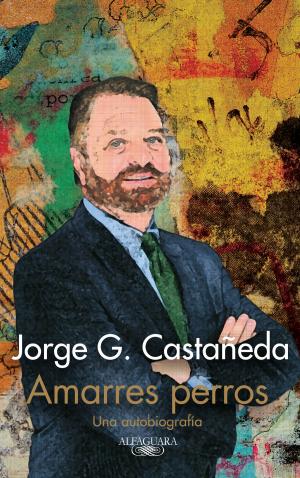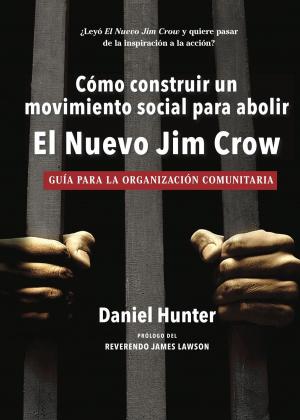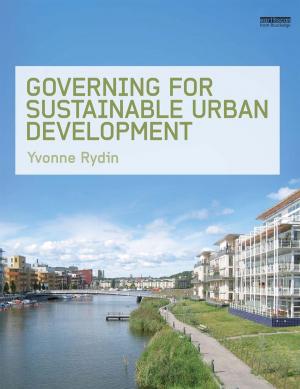| Author: | Emmanuel Yevenes | ISBN: | 9781301783021 |
| Publisher: | Emmanuel Yevenes | Publication: | October 2, 2013 |
| Imprint: | Smashwords Edition | Language: | English |
| Author: | Emmanuel Yevenes |
| ISBN: | 9781301783021 |
| Publisher: | Emmanuel Yevenes |
| Publication: | October 2, 2013 |
| Imprint: | Smashwords Edition |
| Language: | English |
Eva Duarte was born in the town of Los Toldos in the Argentine pampas or flatlands. Miles of nothingness surrounded her early years of bliss. Her single mother struggled to make ends meet but parental struggle had never concerned a child. At fourteen she dreamed with becoming an actress and a year later, in 1935, she was in Buenos Aires auditioning for roles. She landed a small part and her career was on, though, like any artistic endeavor it led to privations. She knocked doors and talked to anyone who might want to offer her a role.
Her breakthrough came with a play about condoms. The government wanted to motivate its use and commissioned a play which was staged all over the country, with Eva performing one of the leads. It lasted a few weeks. The theater hardly paid rent. Her hours in buses to and from home in the outskirts of the city gave her time to think. And surely she was edged on to improve her lot from the habitual butt pinching from the males in the crowded buses.
Buenos Aires was a hotbed of creativity, with more than twenty films made every year and a booming commercial radio business. It was here, in the latter, where Eva found her calling. She discovered mass media paid her handsomely. She was chosen to play a series of historic characters and every day women all over the country listened to her voice flush out queens, wives of presidents and heroines.
Soon she got the handle of producing her own programs: radio soap operas financed by detergent manufacturers. Eva never appeared on stage after the play “Money is to be shared.” Soaps provided her with everything she might wanted at twenty three, a nice apartment, steak and potatoes, and many new friends. She had made it. Eva had paid her dues and gotten ahead in a society that provided women few opportunities for independence. And Eva wanted to be her own woman. She found an open door and squeezed in.
Meeting Juan Peron—an army colonel—deeply involved in politics was happenstance. It’s unclear how she met him. Stories abound and conflicting witness accounts are unhelpful to elucidate the beginnings of their relationship. Considering the heavy stigma against openly sexual relationships or any sex encounter which was not of the marital kind, it’s not surprising that they led a quiet, secretive affair before they became a public item.
Peron had been a cabinet member in the government of General Ramirez and became Vice President under the government of General Farrell. He was the strongman behind their governments. Day by day he added to his personal power. Peron knew that there was a constituency out there which could rally to anyone who promised them what they wanted, better salaries and dignity. Peron had been to Europe at the height of fascism in Italy and had absorbed their view of life and politics. But the army did not like his ideas. They wanted a corporate man, not a lone shooter or a dictator and deplored his charisma and popularity.
Eva was fascinated by the power play and according to Peron’s collaborators, she never missed a meeting. Eva was there, learning. Peron angled for the presidency. He needed supporters. It was rumored he could be a leading candidate if and when elections were held.
Peron’s political enemies leaned on the president to get rid of him. Farrell asked Colonel Juan Peron to resign. Eva feared for his life. The Argentine Navy arrested him in a plot to destroy his political plans but Peron’s followers staged a rally of millions and he was released.
Peron marries Eva and she becomes Eva Duarte de Peron, later to be known as Evita Peron. She understood what was to be poor, what to was to be treated like dirt. Evita rose to the occasion and helped him become president.
First lady at twenty eight was just the beginning of her personal adventure.
Eva Duarte was born in the town of Los Toldos in the Argentine pampas or flatlands. Miles of nothingness surrounded her early years of bliss. Her single mother struggled to make ends meet but parental struggle had never concerned a child. At fourteen she dreamed with becoming an actress and a year later, in 1935, she was in Buenos Aires auditioning for roles. She landed a small part and her career was on, though, like any artistic endeavor it led to privations. She knocked doors and talked to anyone who might want to offer her a role.
Her breakthrough came with a play about condoms. The government wanted to motivate its use and commissioned a play which was staged all over the country, with Eva performing one of the leads. It lasted a few weeks. The theater hardly paid rent. Her hours in buses to and from home in the outskirts of the city gave her time to think. And surely she was edged on to improve her lot from the habitual butt pinching from the males in the crowded buses.
Buenos Aires was a hotbed of creativity, with more than twenty films made every year and a booming commercial radio business. It was here, in the latter, where Eva found her calling. She discovered mass media paid her handsomely. She was chosen to play a series of historic characters and every day women all over the country listened to her voice flush out queens, wives of presidents and heroines.
Soon she got the handle of producing her own programs: radio soap operas financed by detergent manufacturers. Eva never appeared on stage after the play “Money is to be shared.” Soaps provided her with everything she might wanted at twenty three, a nice apartment, steak and potatoes, and many new friends. She had made it. Eva had paid her dues and gotten ahead in a society that provided women few opportunities for independence. And Eva wanted to be her own woman. She found an open door and squeezed in.
Meeting Juan Peron—an army colonel—deeply involved in politics was happenstance. It’s unclear how she met him. Stories abound and conflicting witness accounts are unhelpful to elucidate the beginnings of their relationship. Considering the heavy stigma against openly sexual relationships or any sex encounter which was not of the marital kind, it’s not surprising that they led a quiet, secretive affair before they became a public item.
Peron had been a cabinet member in the government of General Ramirez and became Vice President under the government of General Farrell. He was the strongman behind their governments. Day by day he added to his personal power. Peron knew that there was a constituency out there which could rally to anyone who promised them what they wanted, better salaries and dignity. Peron had been to Europe at the height of fascism in Italy and had absorbed their view of life and politics. But the army did not like his ideas. They wanted a corporate man, not a lone shooter or a dictator and deplored his charisma and popularity.
Eva was fascinated by the power play and according to Peron’s collaborators, she never missed a meeting. Eva was there, learning. Peron angled for the presidency. He needed supporters. It was rumored he could be a leading candidate if and when elections were held.
Peron’s political enemies leaned on the president to get rid of him. Farrell asked Colonel Juan Peron to resign. Eva feared for his life. The Argentine Navy arrested him in a plot to destroy his political plans but Peron’s followers staged a rally of millions and he was released.
Peron marries Eva and she becomes Eva Duarte de Peron, later to be known as Evita Peron. She understood what was to be poor, what to was to be treated like dirt. Evita rose to the occasion and helped him become president.
First lady at twenty eight was just the beginning of her personal adventure.















